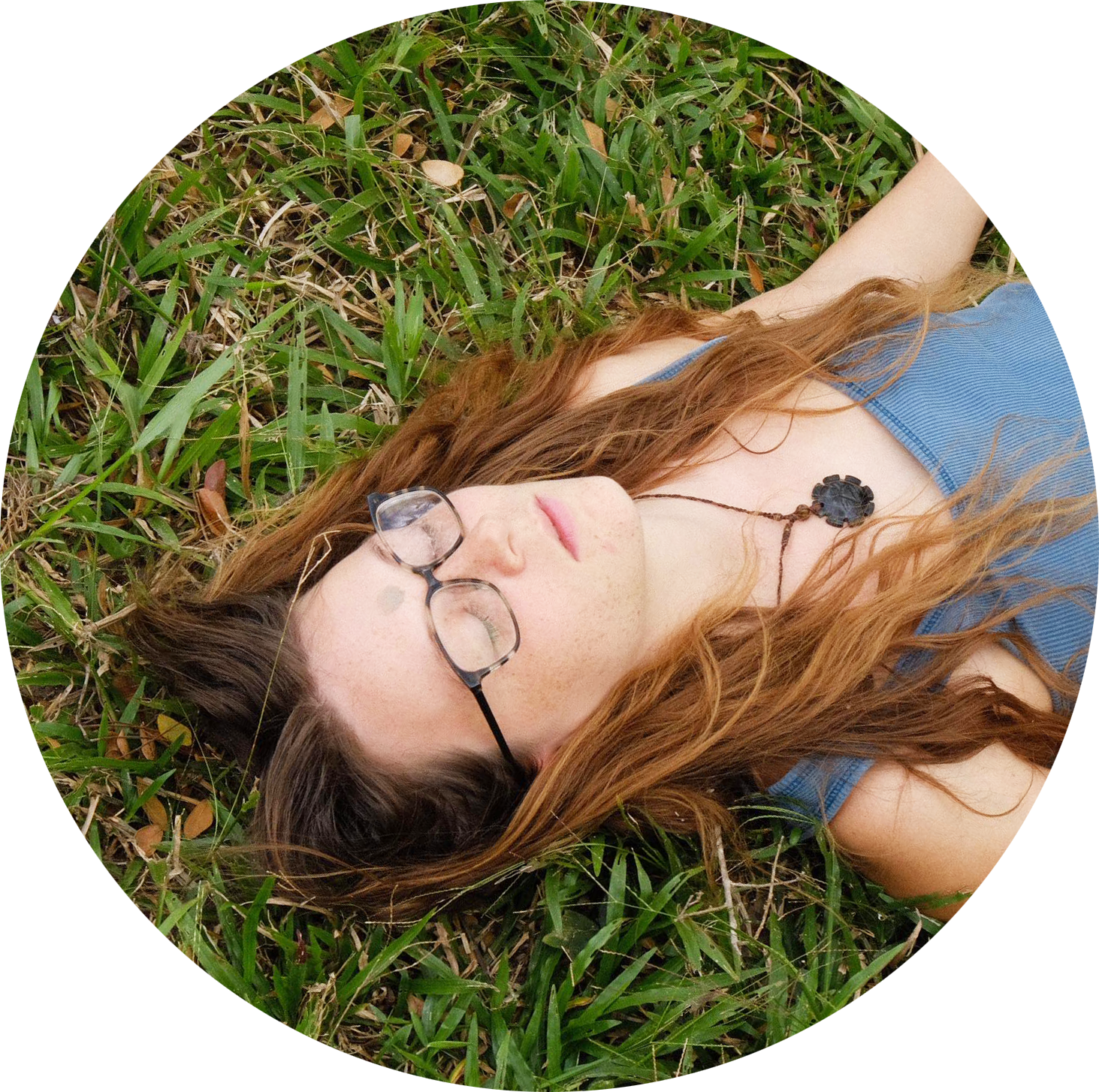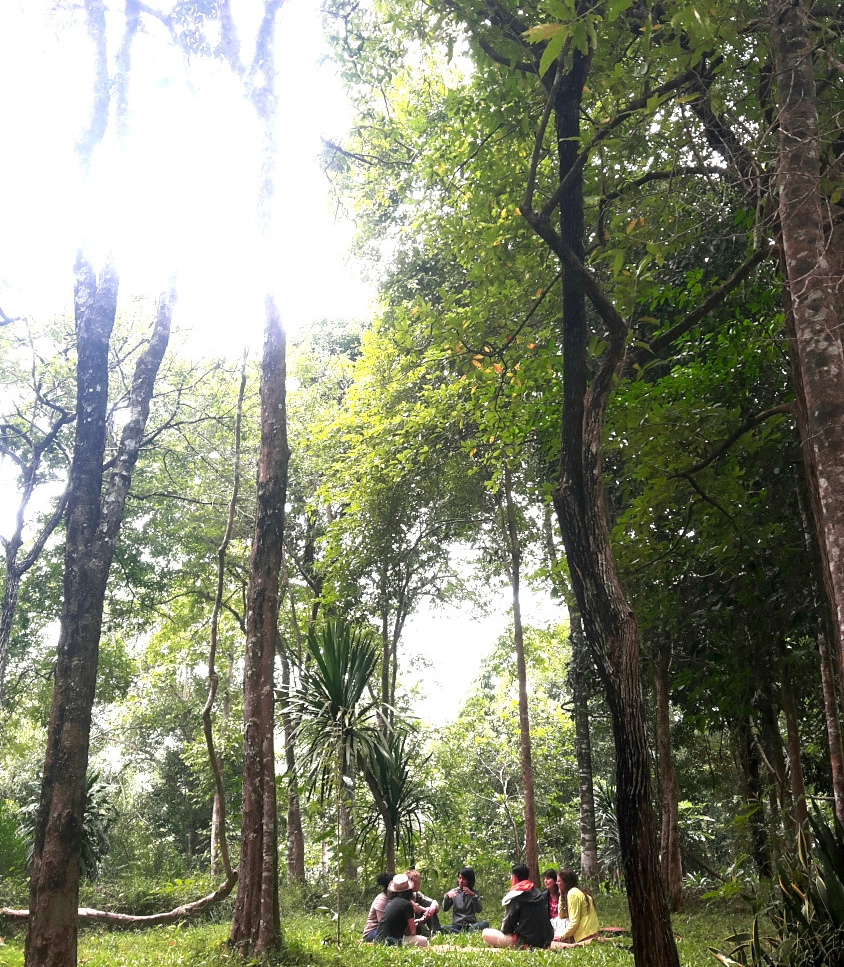The magic of Deep Ecology
Deep Ecology
A natural and joyful way of caring for the health of our planet and our brother and sister beings.
Our beautiful friend Maria Bliklen, Deep Ecology and Ecovillage Design Education facilitator, talks about the concept of deep ecology, the values behind it and why she has this passion for it. If you wanna widen your circles of identification away from our individual ego to the social and ecological self and find your personal well-being reflected in the well-being of any tree, any river or bird or eco-system, this blog post is for you.
Author: Maria Bliklen
Embrace the beauty of nature and all its living beings.
Maria Bliklen, has a deep passion for nature connection, community building and practices that can bring about inner and outer transformation. She has been living and co-facilitating communal life, activities and workshops in the eco-village Gaia Ashram for the past one and a half years. In her facilitation of Deep Ecology work, she loves to weave together guided meditations, singing, deep connection as well as experiential learning activities. Get in touch with Maria!
Expanding our individual self as to embrace all living beings
Arne Naess, the Norwegian philosopher, mountain climber and scholar of Gandhi who was the first to use the term „Deep Ecology“, felt there was a need to ask deeper questions within the environmentalist movement of his time. „What if“, he wondered, „we could expand our individual self as to embrace all living beings? What if environmental protection would spring from genuine self-love, widened and deepened through identification and empathy with all beings, and motivated by joy and compassion rather than by moralistic arguments or a sense of duty?“
When I first learnt about this idea, I felt a profound „yes!“ in my gut. I was fascinated by the joyful, liberating energy of the thought. If we widen our circles of identification from our individual ego to what Naess calls the social and the ecological self, we will see our personal well-being reflected in the well-being of any tree, any river or bird or eco-system. Caring for the health of our planet and behaving in a way that doesn't cause unnecessary suffering to our brother and sister beings then becomes natural again; an expression of our belonging and a source of joy, heart-felt purpose and meaning rather than a sacrifice or duty.
The call to dissolve the boundaries of what we perceive as our self' and to realize our profound interconnectedness with all that exists carries immense power with it: The power to not only change the way we act in and towards this world, but to change the way we perceive, think and feel.
Getting to touch and feel nature is a profound action to start a shift in perception. Photo: www.rocksandrosesstudio.com
Nothing but a profound shift in human perception can possibly turn things around
How would this world look like if we allowed every breath we take to kiss us awake not only with gratitude for the trees and plants providing us with life-maintaining oxygen but also with insight into the fundamental one-ness of inside and outside, self and environment, human and nature?
How would we live our lives if we were capable of really seeing all the rich diverseness and beauty around us, acknowledging and appreciating the intrinsic value of every being, human or nonhuman, small or big, sentient or not?
If we understood ourselves as participants in the living system of the Earth, what role would we choose to play in this web of life?
Whatever answers we can imagine to these questions, one thing is sure: a reality built on such a kind of relationship between humans and the rest of nature would look very different from the madness and horrors that we see unfolding everywhere today. Systems thinker, physicist and deep ecologist Fritjof Capra has analyzed the multi-faceted crises we are facing – ranging from climate change, mass extinction of species, worsening social division, injustice, poverty and war to many other, interrelated problems – as being „all different facets of one single crisis, which is essentially a crisis of perception”. It becomes pretty clear then that nothing but a profound shift in human perception can possibly turn things around. Cleaning up our polluted rivers and recycling plastic will not be enough to make a real, sustainable change.
Understanding ourselves as participants in the living system of the Earth.
Questioning ideas, perceptions and values that shape us and our system
What we need is a deep and daring questioning of the very ideas, perceptions and values that shape both our social and economic systems and the individual behaviour of each of us. Deep experience of our profound connection with all beings throughout space and time can help us to widen our sense of self, and thereby shift what we perceive as our self-interest as well. And finally, the insights of our minds and hearts need to grow into a deep commitment to putting the full weight of our lives and our choices behind our vision of a healing world.
The good news is that we don't have to develop some super-human qualities or crazy transcendent spiritual realization in order to do this. Arne Naess made a point of introducing the ecological self as the natural identification of any mature human being with the whole of nature, and modern psychologists, as well as evolution biologists, again and again, remind us that all of us are born with an inherent capacity for compassion and that the need for collaboration and mutual belonging has been programmed into our genes for eons. If we confuse our self with the narrow and limited ego, we tragically underestimate ourselves.
Once we realize the devastating consequences our distorted perception of reality has both for ourselves as humans and for the whole Earth, Arne Naess urged, „we must find and develop therapies which heal our relations with the widest community, that of all living beings.“ One such therapy that has been used around the world in workshops and group processes for almost fifty years is The Work that Reconnects, also known as „Despair and empowerment work“ or simply „Deep Ecology work“. In the words of root teacher Joanna Macy, its central purpose is exactly this:
„To help people uncover and experience their innate connections with each other and with the systemic, self-healing powers in the web of life, so that they may be enlivened and motivated to play their part in creating a sustainable civilization."
The spiral of the Work That Reconnects is a journey through four stages: Coming from Gratitude, Honoring our Pain for the World, Seeing with New Eyes, and Going Forth.
Inner work and engaging in environmentalist activism cannot be done alone
Every time I move through the spiral of this work – grounding my spirit in gratitude and beauty, allowing, honouring and befriending my pain for the suffering of the world, opening my heart-mind for fresh insight and realization to shake me awake and arouse my powers, and walking into new commitments, new projects and actually into each day of my life as an activist, a warrior of peaceful change – I feel deeply moved by and grateful for the deep meaning, belonging and strength the Work that Reconnects has brought into my life. When struggling with inner and outer challenges in this work, feeling weighed down with despair or hopelessness, or even when trying to navigate through the ups and downs of my personal life I find the Deep Ecology story of belonging and the practical and spiritual exercises of the Work that Reconnects to be an invaluable treasure that helps me keep going.
Doing this kind of inner work and engaging in this kind of environmentalist activism is nothing that could be done alone. It is a joy and privilege for me to share this journey with others, to facilitate Deep Ecology workshops and courses, and to engage in deep conversations and experiences together.
Sharing experiences, feelings and thoughts at Gaia Ashram, Thailand.
Get engaged!
Starting from October 2018, I will be in Europe (with a base in Germany) and am looking forward to offer many weekend courses and workshops there. I'm still looking for venues, hosting organizations, and generally Deep Ecology friends to meet and co-create, so if you want to connect, collaborate or organize an event together, please get in touch!
If you'd like to have more information on the courses or just want to get in touch, please contact info@flowful.org.






